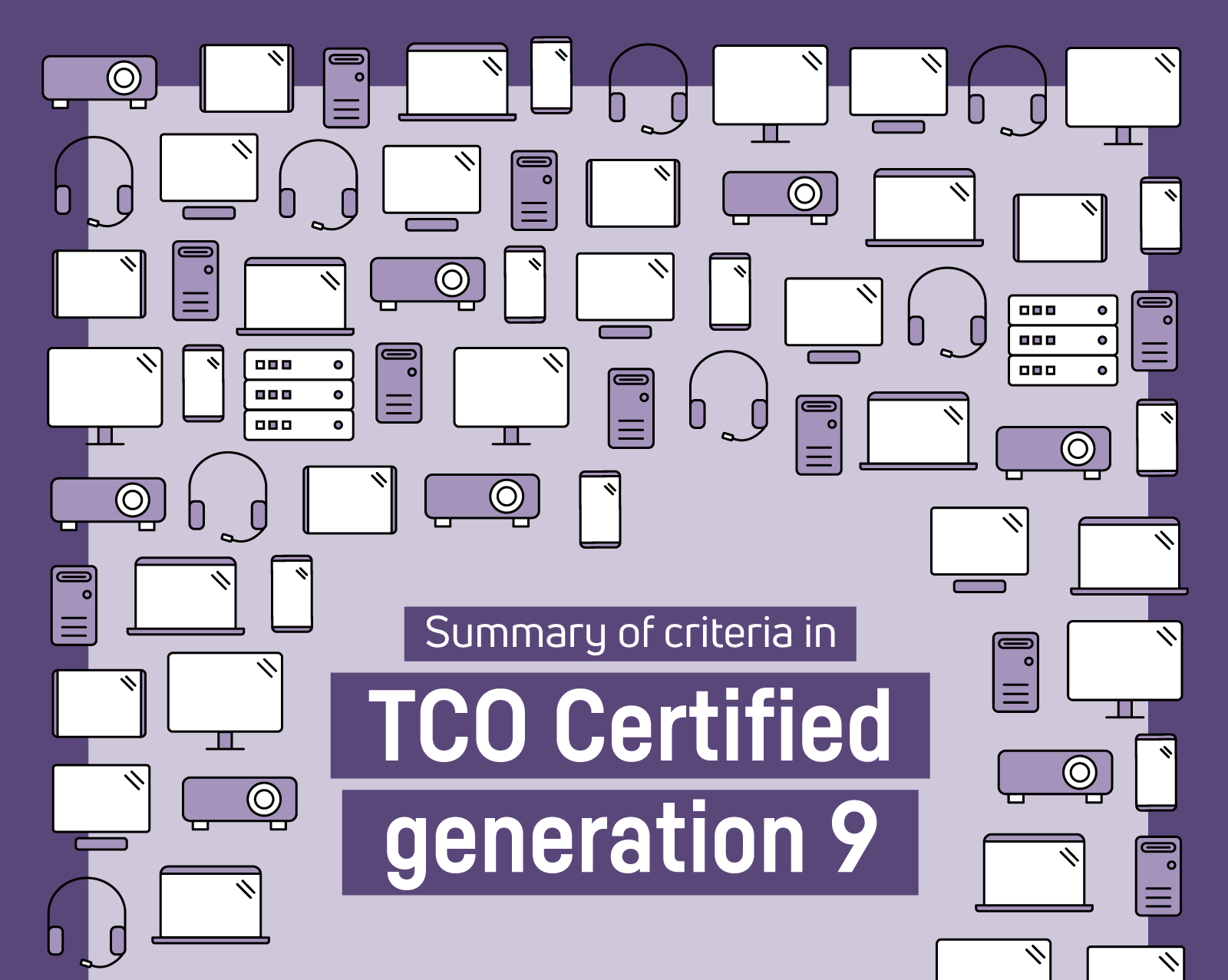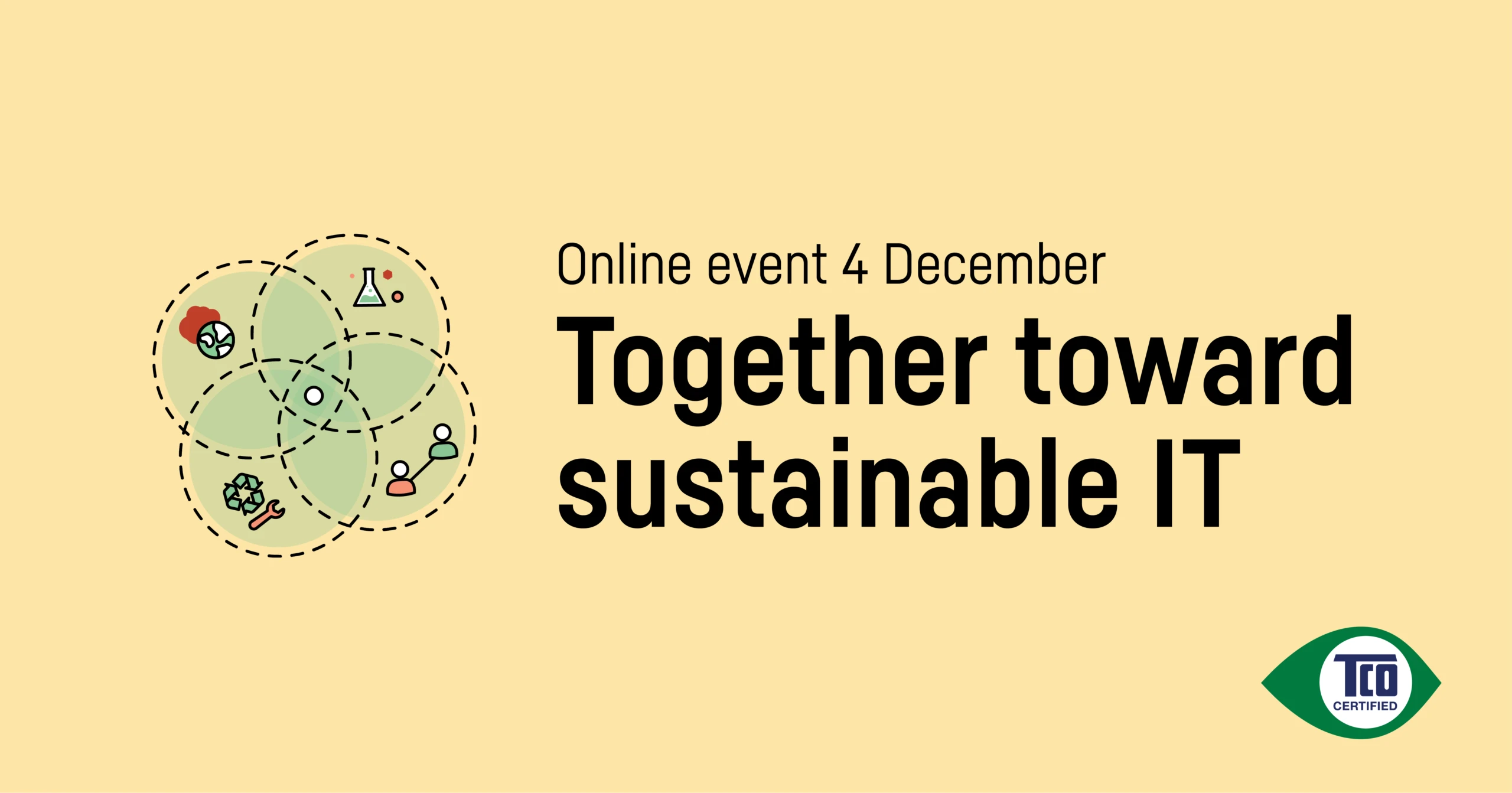TCO Certified, generation 9 is designed to drive sustainability where it matters most. Updates and changes are made in several criteria areas such as socially responsible manufacturing, hazardous substances, and circularity.
Getting to truly sustainable IT products is a journey of continuous improvement in environmental and social responsibility. With TCO Certified, generation 9 we take critical next steps along this pathway. At the launch event for the new generation, our criteria development team explained some of the updates and changes.
Improvements in social responsibility
Stephen Fuller, Senior Criteria Manager, spoke about how TCO Certified, generation 9 helps ensure that minerals are sourced responsibly.
“We’ve engaged brand owners since 2015 to develop a supply chain due diligence process for at least conflict minerals and cobalt,” Stephen Fuller said.
“Unfortunately, the common gap in the process so far has been that it only goes as far as to the smelters. Now we’re moving to fill that gap, so that due diligence continues to the mines.
Generation 9 also increases the leverage of our criteria by requiring transparency about which sub-suppliers are being used.
“Metrics collected on this part of the supply chain will be used to assess how well factories work with their suppliers to identify risks and drive improvements. This is our first step to actively look for human rights violations beyond the final assembly factories,” Stephen Fuller said.
Safer process chemicals
TCO Certified has revolutionized the use of chemicals in certified IT products by establishing the business-leading list for safer alternatives, TCO Certified Accepted Substance List. With generation 9, the list is expanded to include process chemicals used in the manufacture of IT products.
“For chemicals used in manufacturing – so called process chemicals – we’re requiring that only those cleaning solvents that appear on our public TCO Certified Accepted Substances List can be used.”
“What we did previously for flame retardants and plasticizers, we’re now doing for product cleaning solvents. So, if a factory wants to use a particular chemical, they first need to have it independently assessed and then added to our list,” Stephen Fuller said.
If a chemical is not on the list, it is restricted. This transparency helps factories avoid choices that are likely to have negative outcomes. The general rule is to treat chemicals as unsafe until they are proven otherwise.

The next step toward circular IT management
The last generation of TCO Certified included an ambitious package of circular criteria aimed at extending product life and reducing e-waste. By including the certification in product specifications, purchasers get access to products that are durable, repairable, upgradeable and recyclable.
In TCO Certified, generation 9, these criteria are even stricter. One example is the criterion for battery longevity where we place higher demands on battery performance. Mobile IT products are often discarded prematurely because the battery has lost its ability to hold a charge, so this is an important step that can help extend product life.
“We’re also harmonizing our criteria with the EU Green Public Procurement (GPP) battery criteria which means that purchasers can now use TCO Certified as proof of compliance with EU GPP,” says Stefan Carlberg, Certification Manager, TCO Development.
Another improvement is made regarding the chargers, to increase the re-use of old chargers that people have at home and in the office and decrease the need to manufacture new chargers.
“It’s problematic that chargers use proprietary connectors and we address this by introducing standardizations towards USB type C and wireless charging,” says Stefan Carlberg.
For more insights, watch the full panel discussion here.




